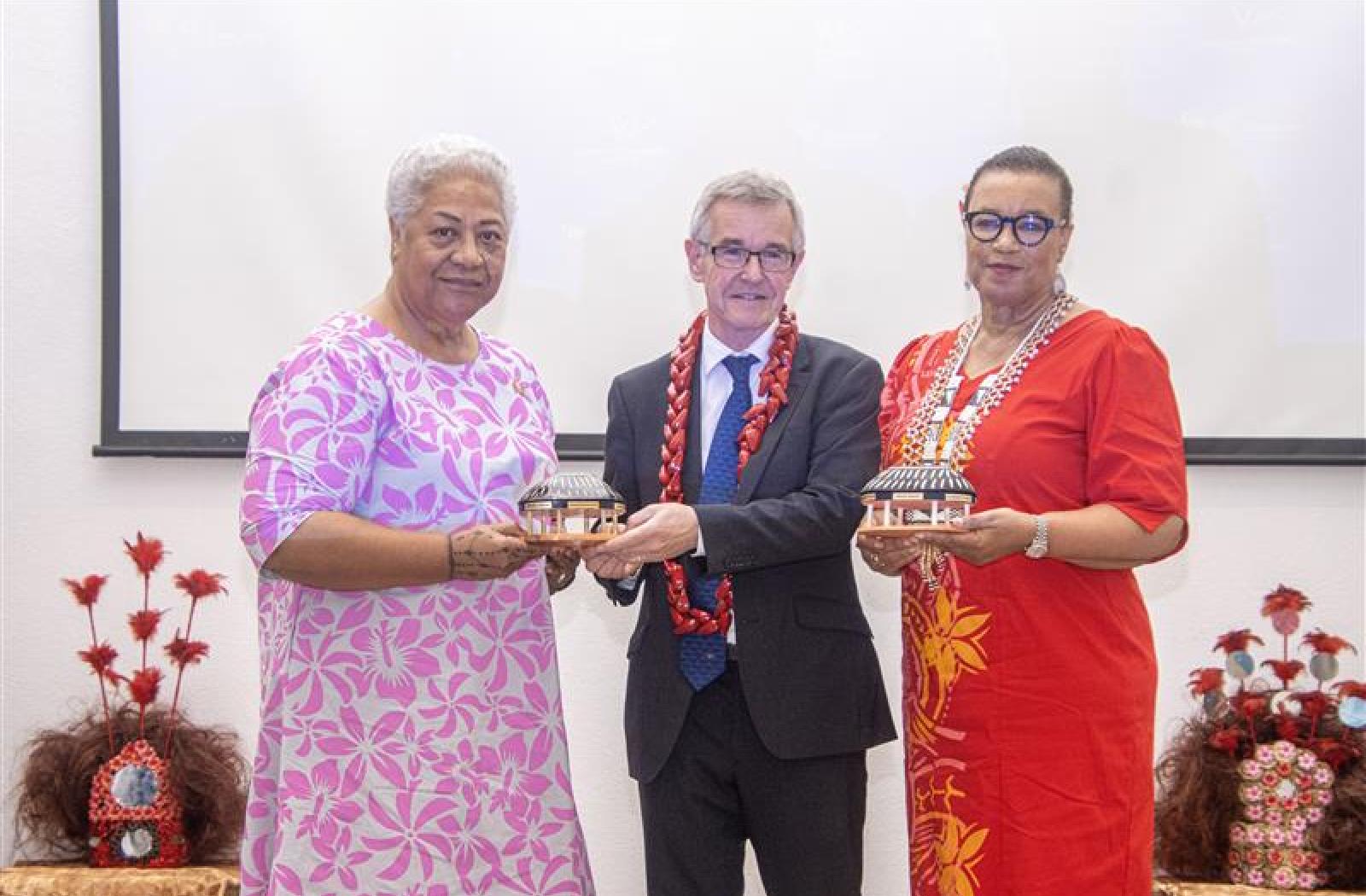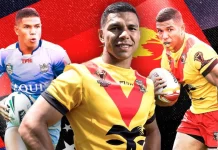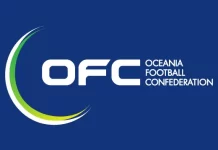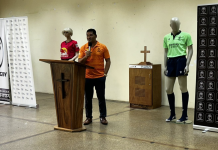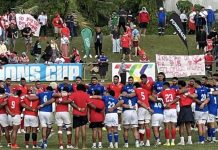Sport changes lives.
It widens the spectrum of opportunities and leads to achievements that unite people. Above all, it leads to better health and human development.
A high-level Sport Breakfast on the sidelines of the Commonwealth Heads of Government Meeting (CHOGM) in Samoa Wednesday advanced discussions on a new model for sport–government engagement to reset and promote the sport movement.
This model is inspired by the Samoan fale, or meeting house. It visualises the five areas of wealth creation – sport, diplomatic, economic, cultural and social – as five pillars of equal importance, holding up a roof that represents the collective goals and values that protect the community. The design of the fale, typically open and without walls, promotes transparency and fosters an environment of accountability. These qualities are critical to a reformed and renewed sport movement that leaves no one behind.
Speaking at the event, the Prime Minister of Samoa, Hon Fiamē Naomi Mataʻafa, said: “In Samoa we have just established our new Ministry of Sports and Recreation. This decision was in recognition of the growing importance of sport in our society as a driving force for public health, recreation and national unity. We also believe there is a lot of untapped talent in sports, especially amongst our youth, which can open doors to many opportunities, to improve the lives of all our people through sport.”
The Commonwealth Sport Breakfast has been a fixture in the CHOGM schedule for many years. This event, facilitated by the Commonwealth Games Federation (CGF) in partnership with the Commonwealth Secretariat and hosted by the Government of Samoa, explored the crucial role that the Commonwealth Sports Movement can play in advancing social and human development outcomes. The model proposed by the CGF places equal value on sporting, cultural, diplomatic, economic and social outcomes, while aiming to reduce hosting costs and ensure shared benefits that widen opportunities for hosting events across the Commonwealth family.
The Commonwealth Secretary-General,Patricia Scotland, said:“Our sports movement must be innovative. This means we must embrace new technologies like AI, virtual reality and wearable devices which are revolutionising how we engage with sport, and we must embrace ‘out-of-the-box’ thinking.
“Digital skills training must now be integral to sports development, and we’ve already seen success with initiatives like our Mass Open Online Course on Sport and SDGs, which has reached over 8,350 learners globally. By continuing to innovate, we push the limits of human potential and use sport to drive societal change.”
Escalating costs are exacerbating inequalities and limiting the number of countries able to host major sporting events, excluding many Commonwealth countries from participation and hosting benefits. Furthermore, the increasing focus on elite sport is widening the gap between top-level sport and grassroots participation at a time when participation rates are declining, and global inactivity and associated lifestyle diseases are on the rise.
Results for a Commonwealth-led baseline and initial impact report on Global Sport and the Sustainable Development Goals (SDGs) indicate that there is a “global inactivity crisis”. The draft report states that:“… regular physical activity is recognised for its protective benefits against non-communicable diseases (NCDs), mental health improvement and overall quality of life enhancement, and yet findings underscore the critical need for policies promoting physical activity.”
This finding is amplified within the Commonwealth NCD Guiding Framework, which promotes an intersectoral approach to weaving a healthy and strong Commonwealth Aiga (family).
Enhanced data collection and targeted interventions are essential to meet the 2030 physical activity goals, reduce the burden of NCDs and improve global health and well-being. Globally, over a quarter of adults are insufficiently active, with higher inactivity rates in high-income countries. Our report finds that Arab states exhibit the highest inactivity levels, while Uganda, Mozambique and Lesotho are the most active. A major red flag from the findings is that the majority – 82.8 per cent – of adolescents are insufficiently active, with girls more likely to be inactive than boys.
The CGF has been a pioneer in mainstreaming social development within the sport movement for all. Achievements such as gender parity at the Commonwealth Games, integrating para-sport competition, year-round delivery of programmes supporting inclusive sport pathways for persons with disabilities, and engaging in advocacy for indigenous rights, historical injustice and LGBTQ inclusion exemplify how sport can facilitate dialogue on issues central to sustainable development.
Celebrated Oceania athlete Sierra Keil, said: “As an athlete, I have witnessed firsthand the transformative power of sports. Looking around this room – our diversity is a testament to sport’s ability to unite, educate and empower people from all walks of life. That’s why I’m passionate about the Commonwealth’s emphasis on Sports for Development, recognising that sport is more than just a game – it’s a catalyst for social change, economic growth and human development.”
The guests at the breakfast also had an update on the 2026 Commonwealth Games in Glasgow, Scotland.
The previous day it was officially announced that Glasgow is confirmed as the host city of the 2026 Commonwealth Games. The 23rd edition of the Commonwealth Games will take place in Scotland from Thursday, 23 July, to Sunday, 2 August 2026, returning to the city 12 years after the hugely successful 2014 Commonwealth Games.






